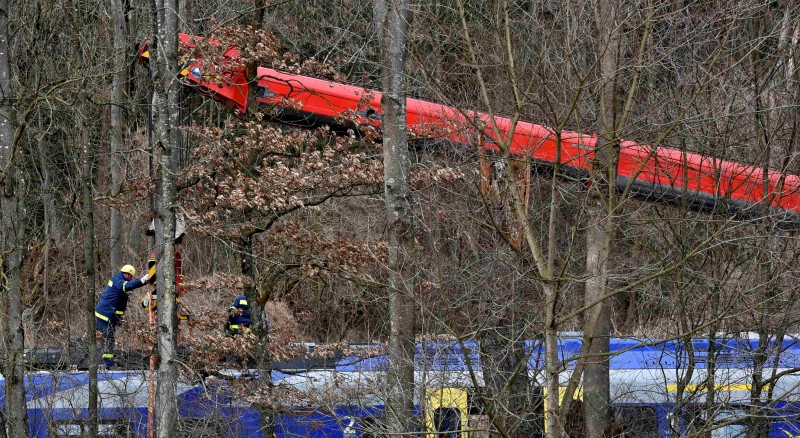BERLIN (Reuters) - A head-on train collision in Bavaria a week ago that killed 11 people was the result of an error by a signal controller, the prosecutor in charge of investigating Germany's biggest train crash since 1998 said on Tuesday.
"Our criminal investigations focus on human failure with catastrophic results, but not on causing the train crash with intent," Wolfgang Giese said during a news conference.
Investigators excluded a technical error. The focus of their investigation is a 39-year-old signal controller who was in charge on the day of the crash one week ago, Giese said.
"His behaviour was not in line with his applicable guidelines as a signal controller," Giese added. "Had he behaved properly and dutifully, the train crash wouldn't have happened."
Investigators said that the man, who completed his controller training in 1997, gave a special signal to one of the trains "which should not have been given", causing the two trains to collide on the one-way track during morning rush-hour.
Realising his mistake, he issued a distress signal but the warning didn't reach the train conductors.
The man has been questioned and is being held at "a safe location" for his own protection. He faces possible charges of causing death through negligence.
"He is not feeling well," Giese said of the man.
The trains, carrying about 150 people in all, crashed at high speed on a 6-km (4-mile) stretch of track between the spa town of Bad Aibling and Kolbermoor, near the Austrian border.
Rescue workers retrieved 10 dead from the wreckage and on Thursday another passenger died from his injuries. It was Germany's most fatal train crash since the derailment of a high speed train in 1998 killed 101 people.
Another 24 passengers were severely injured in Tuesday's crash. About 60 suffered lighter injuries, the head of the police in nearby Rosenheim, Robert Kopp, said.
The trains were operated by Meridian, a sub-division of French passenger transport firm Transdev, which is jointly owned by state-owned bank CDC and water and waste firm Veolia.

State-owned Deutsche Bahn is responsible for the track, which has a speed limit of 100 km per hour.